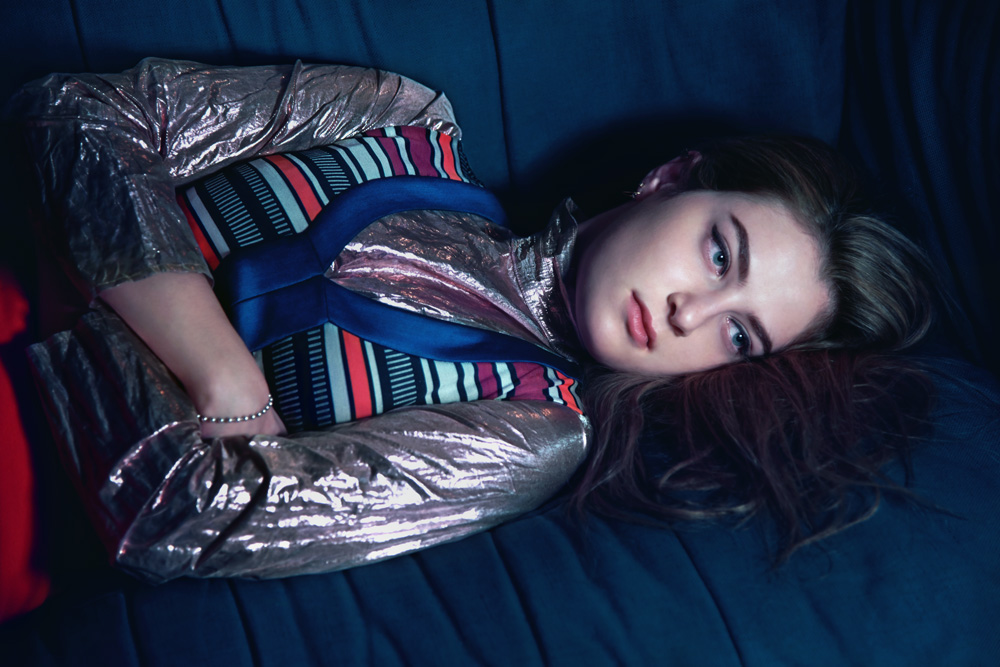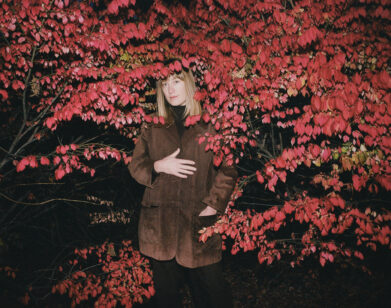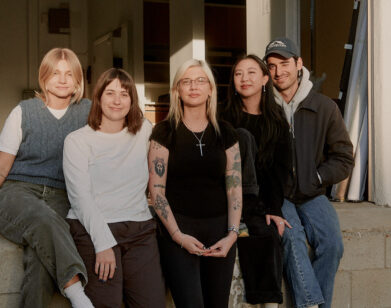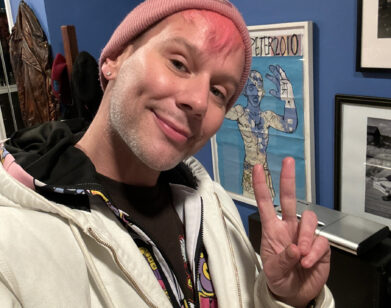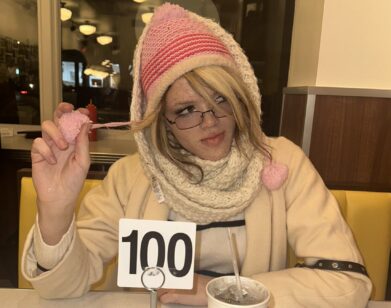Zoe Levin
Despite shooting late into the previous night, actress Zoe Levin walks into New York’s Le Parker Meridien hotel with a smile and gait reminiscent of every all-American mean girl you never really got to know. Maybe it’s due to the confidence she built off her widely praised turn earlier this year in Gia Coppola‘s debut, Palo Alto, where Levin played one of those all-American archetypes—the high school slut. This fall, she’s been cast in another classic role—a once mighty cheerleader felled by a heart condition—in the new Fox series Red Band Society.
“I did a play across the street last year,” the 20-year-old actress says as she takes in her surroundings. “And I stayed here in eighth grade, the first time I came to New York. I remember thinking 57th Street ran north-south and was so narrow and scary.” Before Levin landed her first role in local theater, she grew up ice-skating and taking gymnastics in Chicago. Her Midwestern demeanor, long blond hair, and cherub-like face might explain the impulse to cast her high on the food chain of teenage popularity. Nevertheless, Levin sees gray areas in the “high school bitch” that intrigue her. “You never know what’s going on behind closed doors,” she explains. “There’s a reason why girls are mean and feel the need to put people down or be promiscuous or act out. It’s interesting to see the other side of that. Which you usually don’t.”
In the first episode of Red Band Society, Levin’s character, Kara, finds herself exiled from the cool Heathers-esque lunchroom table and instead ends up in a hospital’s extended-stay ward, where she’s permanently at the bottom of a heart-transplant list thanks to her precocious, party-girl lifestyle. “The bitchy cheerleader type—you don’t often see the interior dynamic of those kinds of characters, especially on TV,” says Levin. “With Kara in particular, she’s forced to confront herself. If she doesn’t, there’s no way she’s going to survive.” It takes a lot of self-possession to play characters broken on the inside, but Levin seems to have learned how to turn a stereotype into a gold mine.

